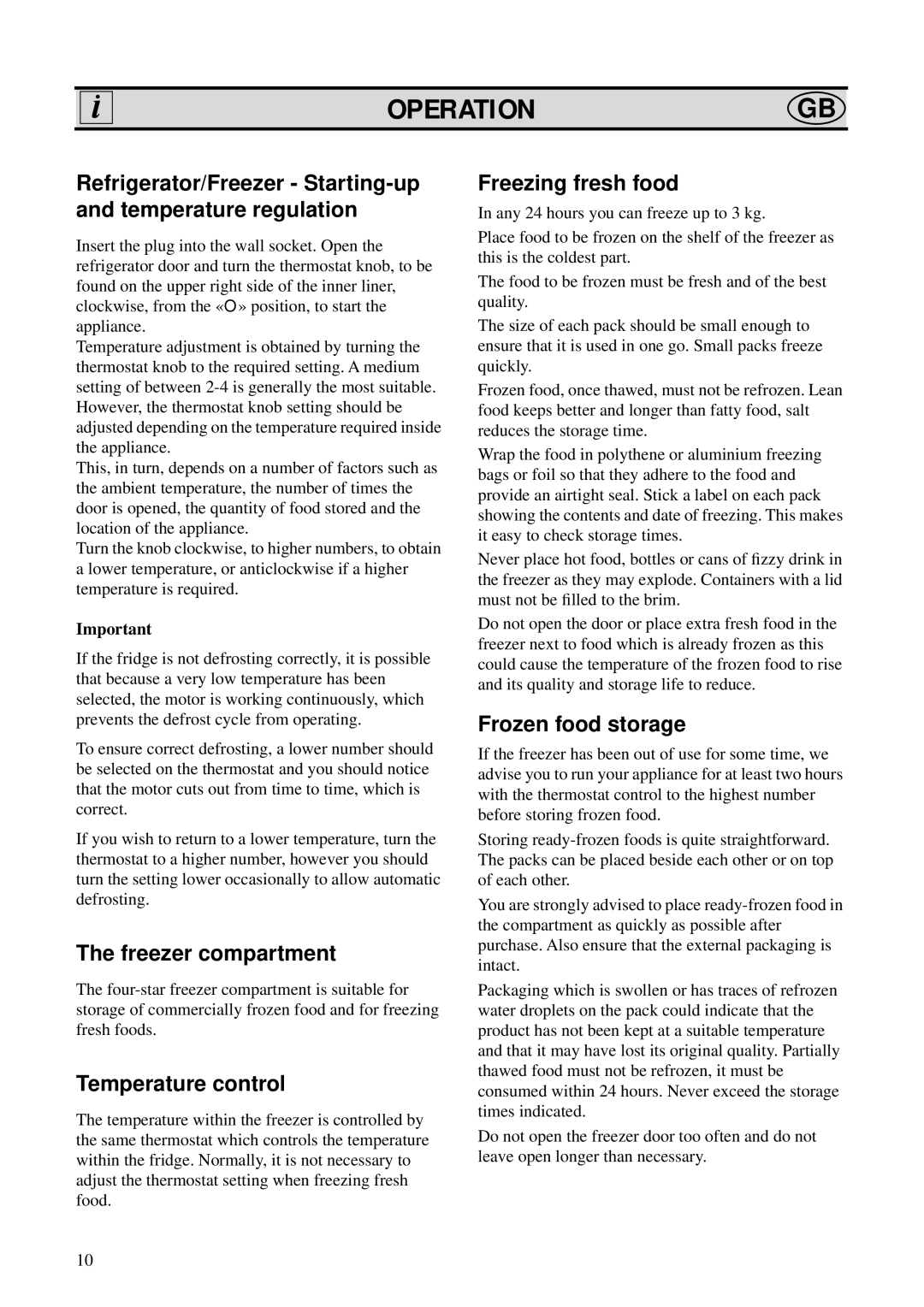OPERATIONGB
Refrigerator/Freezer - Starting-up and temperature regulation
Insert the plug into the wall socket. Open the refrigerator door and turn the thermostat knob, to be found on the upper right side of the inner liner, clockwise, from the «O» position, to start the appliance.
Temperature adjustment is obtained by turning the thermostat knob to the required setting. A medium setting of between
This, in turn, depends on a number of factors such as the ambient temperature, the number of times the door is opened, the quantity of food stored and the location of the appliance.
Turn the knob clockwise, to higher numbers, to obtain a lower temperature, or anticlockwise if a higher temperature is required.
Important
If the fridge is not defrosting correctly, it is possible that because a very low temperature has been selected, the motor is working continuously, which prevents the defrost cycle from operating.
To ensure correct defrosting, a lower number should be selected on the thermostat and you should notice that the motor cuts out from time to time, which is correct.
If you wish to return to a lower temperature, turn the thermostat to a higher number, however you should turn the setting lower occasionally to allow automatic defrosting.
The freezer compartment
The
Temperature control
The temperature within the freezer is controlled by the same thermostat which controls the temperature within the fridge. Normally, it is not necessary to adjust the thermostat setting when freezing fresh food.
10
Freezing fresh food
In any 24 hours you can freeze up to 3 kg.
Place food to be frozen on the shelf of the freezer as this is the coldest part.
The food to be frozen must be fresh and of the best quality.
The size of each pack should be small enough to ensure that it is used in one go. Small packs freeze quickly.
Frozen food, once thawed, must not be refrozen. Lean food keeps better and longer than fatty food, salt reduces the storage time.
Wrap the food in polythene or aluminium freezing bags or foil so that they adhere to the food and provide an airtight seal. Stick a label on each pack showing the contents and date of freezing. This makes it easy to check storage times.
Never place hot food, bottles or cans of fizzy drink in the freezer as they may explode. Containers with a lid must not be filled to the brim.
Do not open the door or place extra fresh food in the freezer next to food which is already frozen as this could cause the temperature of the frozen food to rise and its quality and storage life to reduce.
Frozen food storage
If the freezer has been out of use for some time, we advise you to run your appliance for at least two hours with the thermostat control to the highest number before storing frozen food.
Storing
You are strongly advised to place
Packaging which is swollen or has traces of refrozen water droplets on the pack could indicate that the product has not been kept at a suitable temperature and that it may have lost its original quality. Partially thawed food must not be refrozen, it must be consumed within 24 hours. Never exceed the storage times indicated.
Do not open the freezer door too often and do not leave open longer than necessary.
